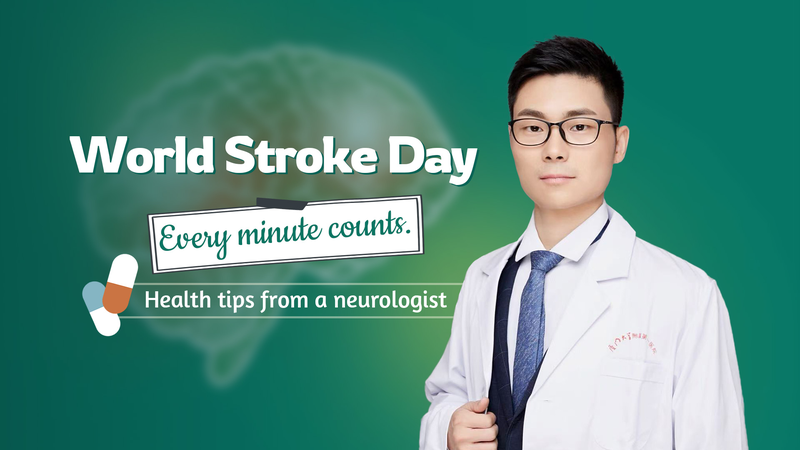October 29 marks World Stroke Day—a reminder that every minute counts when facing a stroke. Associate Chief Physician Fang Jie from The First Affiliated Hospital of Xiamen University breaks down the link between headaches and strokes, outlines warning signs, and highlights the vital FAST response protocol.
A Jarring Wake-Up Call
One July morning, 55-year-old high school math teacher Zhang was jolted awake by a tearing pain in his head. "It felt as if someone was setting off firecrackers in my head," he recalls. When he tried to sit up, the right side of his body went numb.
Thankfully, Zhang’s wife—a retired nurse—recognized slurred speech and one-sided paralysis and called an ambulance. At the hospital, he was diagnosed with a hemorrhagic stroke. Thanks to swift treatment, Zhang stabilized and now walks independently, though he continues daily rehabilitation exercises.
Headache: A Red Flag
Headaches are common among stroke patients in China:
- 20% experience headaches before a stroke attack.
- 27% report headaches at the onset of an ischemic stroke.
- 1–23% suffer persistent headaches for more than three months post-stroke.
Moreover, migraines double the risk of stroke, making them an independent risk factor beyond traditional vascular issues.
The FAST Protocol
Recognizing stroke early can save lives. Remember FAST:
- Face: Ask the person to smile. Does one side droop?
- Arm: Can they raise both arms?
- Speech: Is speech slurred or strange?
- Time: If you observe any signs, call emergency services immediately.
Every second counts. Acting fast not only improves survival rates but also reduces long-term disability.
Prevention Tips for a Healthy Brain
- Manage blood pressure through regular check-ups and a balanced diet.
- Stay active—aim for at least 150 minutes of moderate exercise per week.
- Maintain a healthy weight and avoid smoking.
- Monitor and control cholesterol and blood sugar levels.
- Recognize and treat migraines under medical guidance.
By staying informed and proactive, you can defend your brain and reduce stroke risk. Share this guide to spread awareness and help others act FAST when every minute matters.
Reference(s):
cgtn.com




